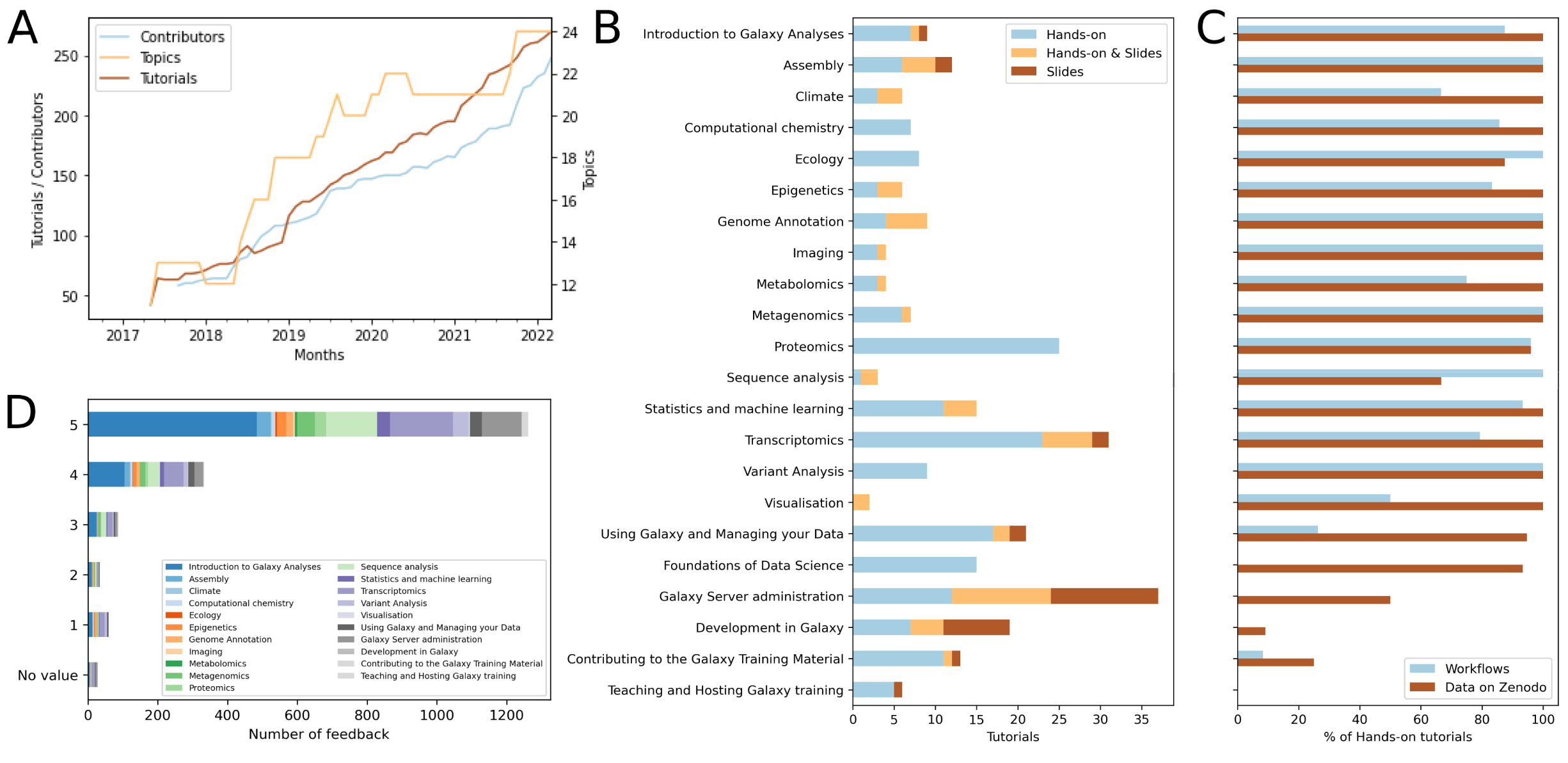New Paper "Galaxy Training: A powerful framework for teaching!"
Our new paper about the Galaxy Training Network has been published this week in Plos Computational Biology: "Galaxy Training: A powerful framework for teaching!"
We would like to thank all contributors to the GTN and Galaxy ecosystem in general. Without you, we would not have able to build such a great platform and awesome material, and reach some many people! We would like to thank also to the reviewers for their valuable comments that helped improving the paper.

![Statistics about training events organized by the Galaxy community and visits of the GTN website over years. (A) Number of events supported GTN materials, registered on the Galaxy Community Hub website [22], per year between 2018 and 2021. (B) Number of TIaaS events per year on Galaxy Europe (collected in May 2022). (C) Number of participants to TIaaS events per year on UseGalaxy.* (collected in May 2022). (D) Number of visits per year on the GTN website and per topics, initially tracked by Google Analytics and later with Plausible (collected in May 2022).](/assets/static/2023-01-10-gtn-paper-fig1.42db587.9fe87dee27ba84716271cd9dcd4df8bc.png)
Abstract
There is an ongoing explosion of scientific datasets being generated, brought on by recent technological advances in many areas of the natural sciences. As a result, the life sciences have become increasingly computational in nature, and bioinformatics has taken on a central role in research studies. However, basic computational skills, data analysis, and stewardship are still rarely taught in life science educational programs, resulting in a skills gap in many of the researchers tasked with analysing these big datasets.
In order to address this skills gap and empower researchers to perform their own data analyses, the Galaxy Training Network (GTN) has previously developed the Galaxy Training Platform (https://training.galaxyproject.org), an open access, community-driven framework for the collection of FAIR (Findable, Accessible, Interoperable, Reusable) training materials for data analysis utilizing the user-friendly Galaxy framework as its primary data analysis platform.
Since its inception, this training platform has thrived, with the number of tutorials and contributors growing rapidly, and the range of topics extending beyond life sciences to include topics such as climatology, cheminformatics, and machine learning. While initially aimed at supporting researchers directly, the GTN framework has proven to be an invaluable resource for educators as well. We have focused our efforts in recent years on adding increased support for this growing community of instructors. New features have been added to facilitate the use of the materials in a classroom setting, simplifying the contribution flow for new materials, and have added a set of train-the-trainer lessons. Here, we present the latest developments in the GTN project, aimed at facilitating the use of the Galaxy Training materials by educators, and its usage in different learning environments.